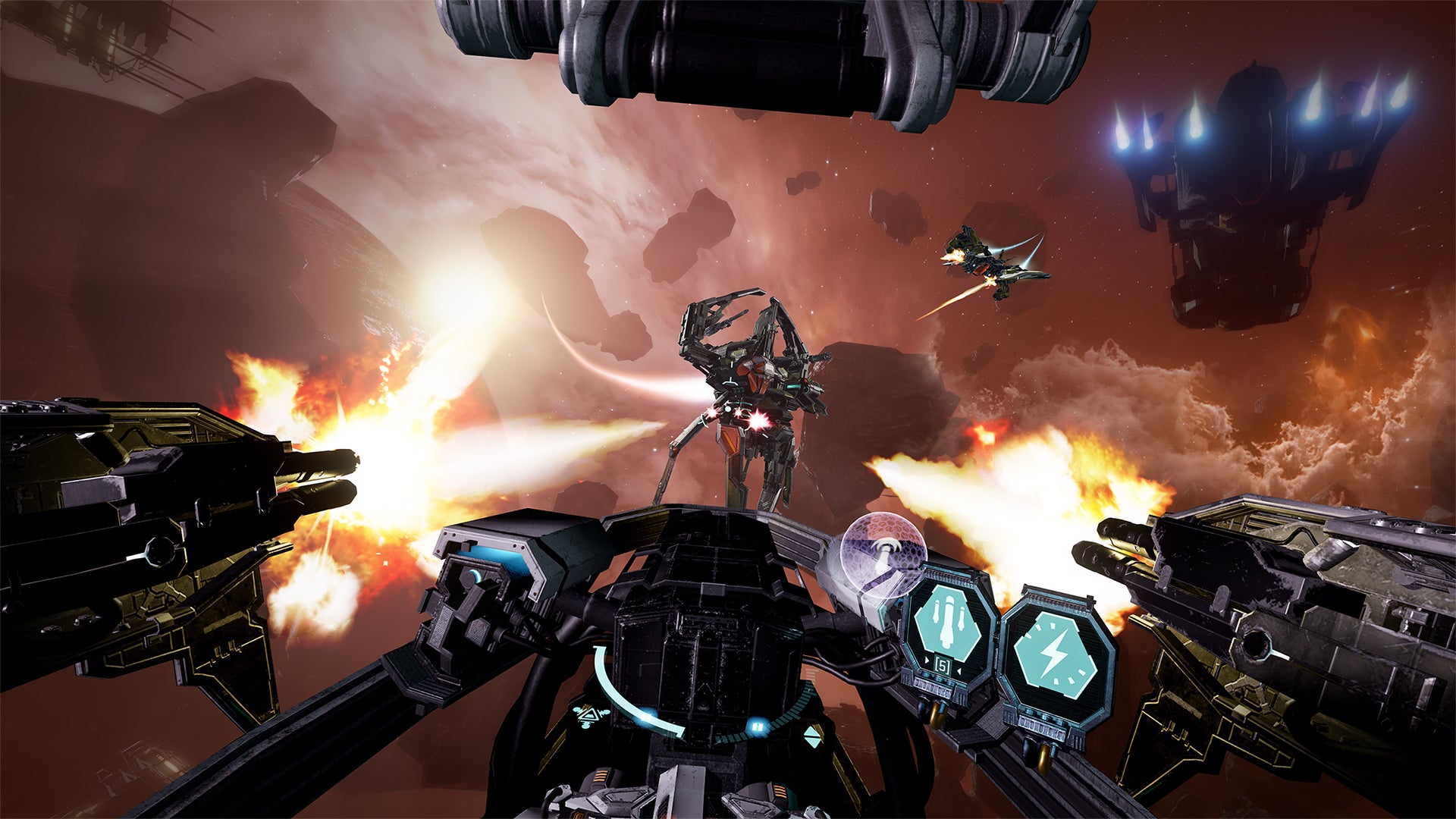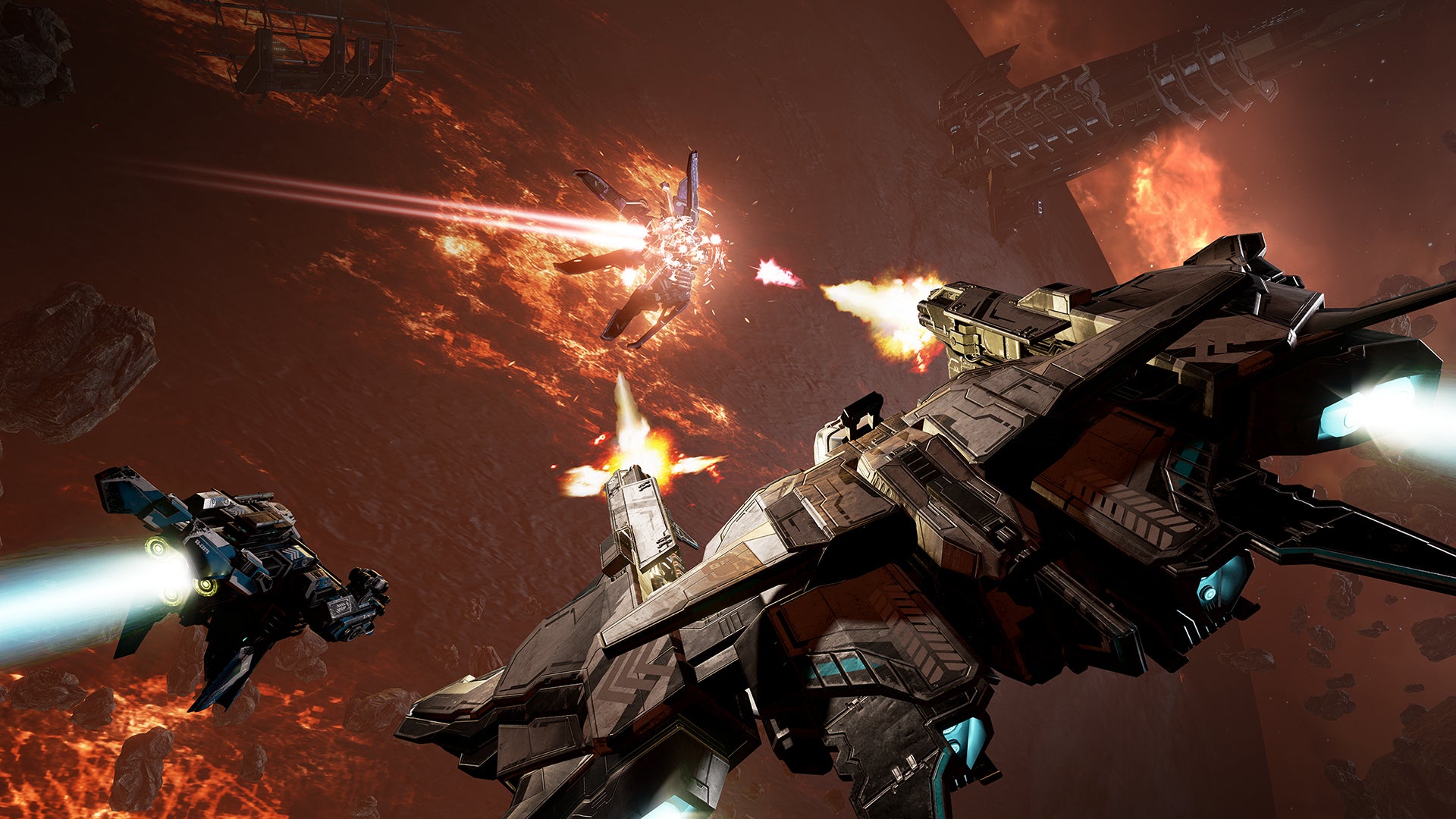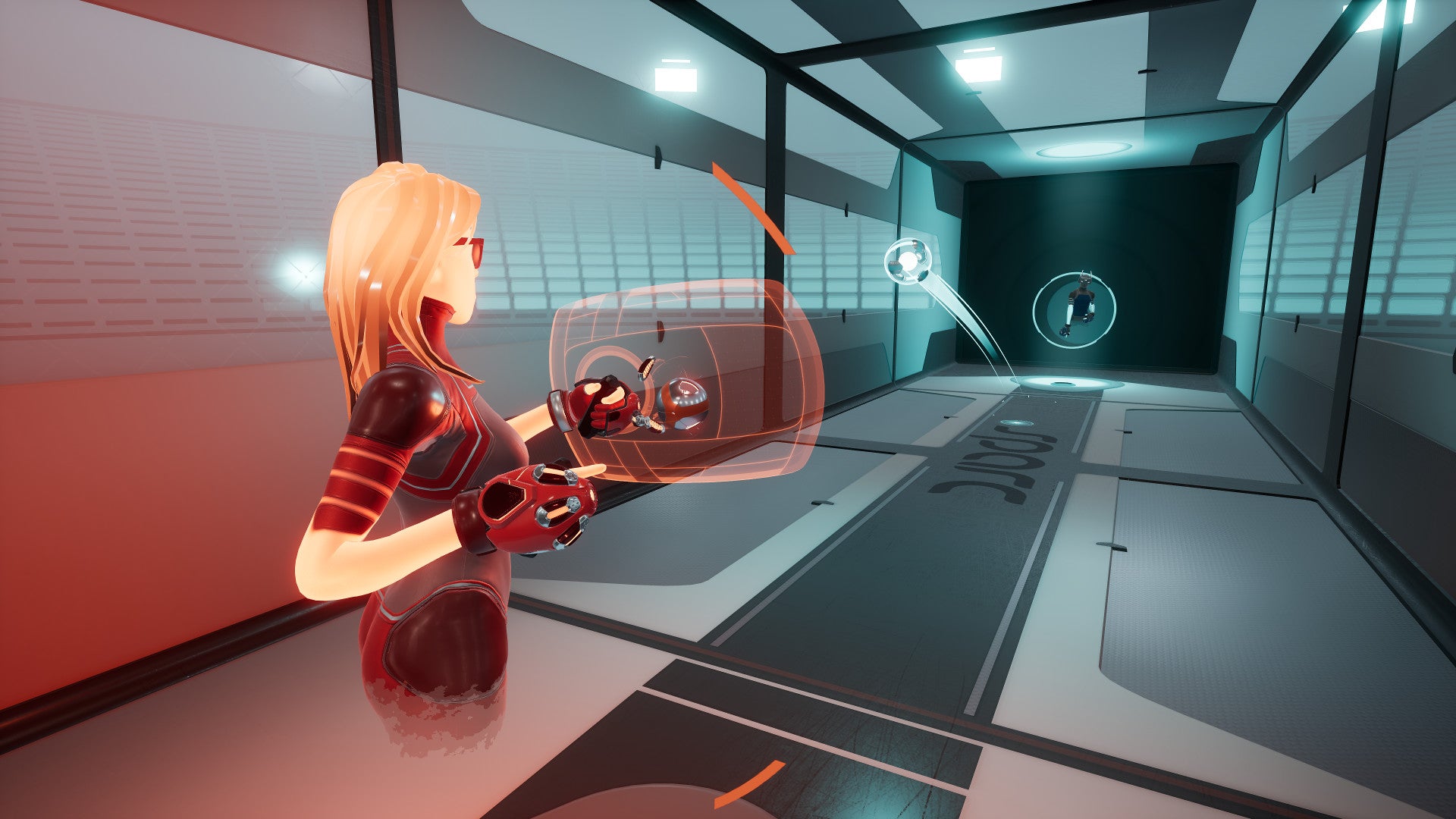Pétursson is hardly the first person to profess an affection for Paul Verhoeven’s cult military satire. But he is one of the few with command of his own company of science fiction game developers. For well over half of Eve Online’s existence, he has led CCP in an effort to create the perfect spin-off shooter - stubbornly chasing the dream of a playable Starship Troopers, even as those brave young prototypes have been cut down by unimpressed players, one after the other. In Reykjavík, at last weekend’s Eve Fanfest, Pétursson took to the stage to reveal that CCP is now embarking on its third attempt at an FPS - abandoning his casual presenting style to read from a PR-approved teleprompter. “In London, we are doing an upcoming online tactical first-person shooter,” he said. “The project is unannounced. We recognise that hard sci-fi in the Eve universe is something that needs to exist, and we’re committed to doing an innovative, multiplayer, atmospheric experience.” Any of those adjectives could have once applied to Dust 514, the competitive shooter CCP released exclusively for the PS3 almost a decade ago. A Battlefield-style FPS set across outdoor environments reminiscent of Iceland, it had a genuine USP: live connectivity with Eve Online. Player ships in the MMO could pummel the playing field with orbital strikes, giving the mercs on their side an advantage. Fleet does the flying, marines do the dying. That alluring symbiosis couldn’t make up for the mediocre shooting, however - nor tempt Eve’s player corps away from their own schemes. By the time Dust shut down in 2016, orbital bombardments were only really something you saw on YouTube - a fascinating novelty rather than a game-changing mechanic. For its next attempt, CCP overcorrected - abandoning Dust’s wonky ambition for a far simpler design. Project Nova, presented in playable form to Fanfest attendees in the year of Dust’s demise, confined the action to the deck of a single spaceship. Chrome corridors connected control points, which players scrapped over in sensible, grounded firefights - evoking the considered pace and weighty consequence of a Rainbow Six. It was, perhaps, a little too self-serious (“I abhor silliness,” CCP Shanghai senior director Snorri Árnason told me that year). And while CCP harboured plans to expand outward from that condensed demo, there was little appetite for more among players. Trapped in the chokepoints of an abstracted FPS map, they struggled to believe they were passengers on a Chimera-class carrier - let alone citizens of the wider Eve universe. Realising its mistake, CCP scrapped Nova and has opted for a third way. Having made one FPS too hot, and another too cold, it now seeks to make one that’s just right. “Your reading of the tea leaves is basically spot on,” Pétursson says. “Dust was overambitious and broad, tried to achieve many things, compromised on some of them. Nova was very focused, perhaps too focused. It didn’t really seem like it was going to be a project that we wanted to carry further. We moved that idea of doing a shooter, which we’re extremely stubborn about wanting to make happen, and our London project is very much informed by all those efforts. Maybe this one is somewhere in the middle.” The move that Pétursson alludes to is significant. Dust and Project Nova were both developed at CCP’s studio in Shanghai. The new FPS will instead be handled by a new London office, which has been ramping up over the past five years. “It was mainly a talent pool thing,” Pétursson says. “Our Shanghai studio is much more excited about mobile than they are about PC.” As such, the Shanghai team is now leading efforts on a mobile 4X game, codenamed M5, on top of running Serenity, Eve Online’s dedicated server in China. “It’s really born from their desire to become a mobile expertise centre for CCP,” Pétursson says. The Shanghai team weren’t available to speak for themselves at Fanfest, having been caught up in the city’s latest Covid-19 lockdown. London, Pétursson reckons, is an ideal spot to build the new FPS. For starters, it’s just a couple of hours from CCP’s Icelandic homeland, by plane. “It’s competitive, but there are a lot of people in London to hire,” Pétursson says. “Getting people to relocate to London is pretty trivial. Americans are very up for moving.” That’s in contrast to Reykjavík, which despite its edge-of-the-world beauty has proven a tricky sell to global talent in the past. “It’s been a big project internally,” Pétursson says. “We’re both recruiting into the project, teamwise, and we will be starting more efforts in early community-building under NDA. So it’s time to open up the kimono a little bit, while the project isn’t formally announced. There’s no name associated with it, not even a codename - it’s just the London Project.” Onstage, Pétursson revealed that 63% of CCP employees today joined since the last Fanfest, in 2018. But the growth of the London studio comes in the wake of a painful contraction for CCP. Between 2012 and 2017, the developer invested heavily in VR - backing the technology in a wholehearted fashion that other established studios, with the exception of Valve, didn’t. The most exciting fruits of that labour were Eve: Valkyrie, a heart-in-mouth dogfighting simulator, and the deeply underrated Sparc, a Tron-like ball sport. “Then there was this point in time where you could see the adoption really slowing down,” Pétursson says. “It seemed like, by mid-year 2017, everyone that wanted a VR set had acquired one. We took a hard look and said, OK, we have to take a break. We could have done tiny games, but we felt it was cleaner to take a formal vacation. So we made some difficult changes around that.” The Eve: Valkyrie studio in Newcastle was sold to Sumo Digital, and has since put out Hood: Outlaws & Legends. But the Sparc team in Atlanta simply ceased to be. “It was a damn shame,” Pétursson says. “They were quite far from the overall CCP setup, and we needed to consolidate. Something had to give. I wish it were different. The team was phenomenal, and the work shows in Sparc.” The grand VR experiment didn’t hurt CCP as a business. “If you look at the whole thing, then it was OK,” Pétursson says. “Nothing ventured, nothing gained. We got in at the right time, but got out at the right time.” The CEO is hopeful that, in two or three years, with the added momentum of PSVR 2 and Meta’s upcoming plans for Oculus, the landscape of VR might be different. “Maybe we’ll be in a place where the VR market is a very viable one,” he says. “And then we would love to take a look again, and see what our prowess from the earlier phase could bring us in that arena.” In the meantime, it’s back to Starship Troopers. There’s a feeling within CCP that Eve Online’s fiction is an unusual offering, even within the crowded world of video game sci-fi, and that the FPS genre could stand to benefit. “It’s not science fantasy,” head of PR George Kelion says. “It’s not laser swords.” New Eden’s closest pop cultural equivalent is The Expanse - or perhaps Infinite Warfare, the Call of Duty campaign in which the Martian invaders were simply humans born offworld, with a different worldview. “One of the things I love about the fiction of New Eden is that all the enemies in New Eden are humans,” Kelion says. “Even the ones who look like they might not be humans were at some point, or were close cousins of humans. And I like that science fiction where we’re both our own saviours and our own downfall. We have it in us.” Given that COD has long since turned its back on sci-fi, it does seem as if there’s a space for CCP to colonise with the London Project. “It’s 21,000 years in the future, but the tone and the texture that New Eden has is recognisable,” Kelion says. “And it’s something that I think people want to - certainly I want to, and people on the team want to - see up close, rather than a million miles away. We wanna get in there.”



